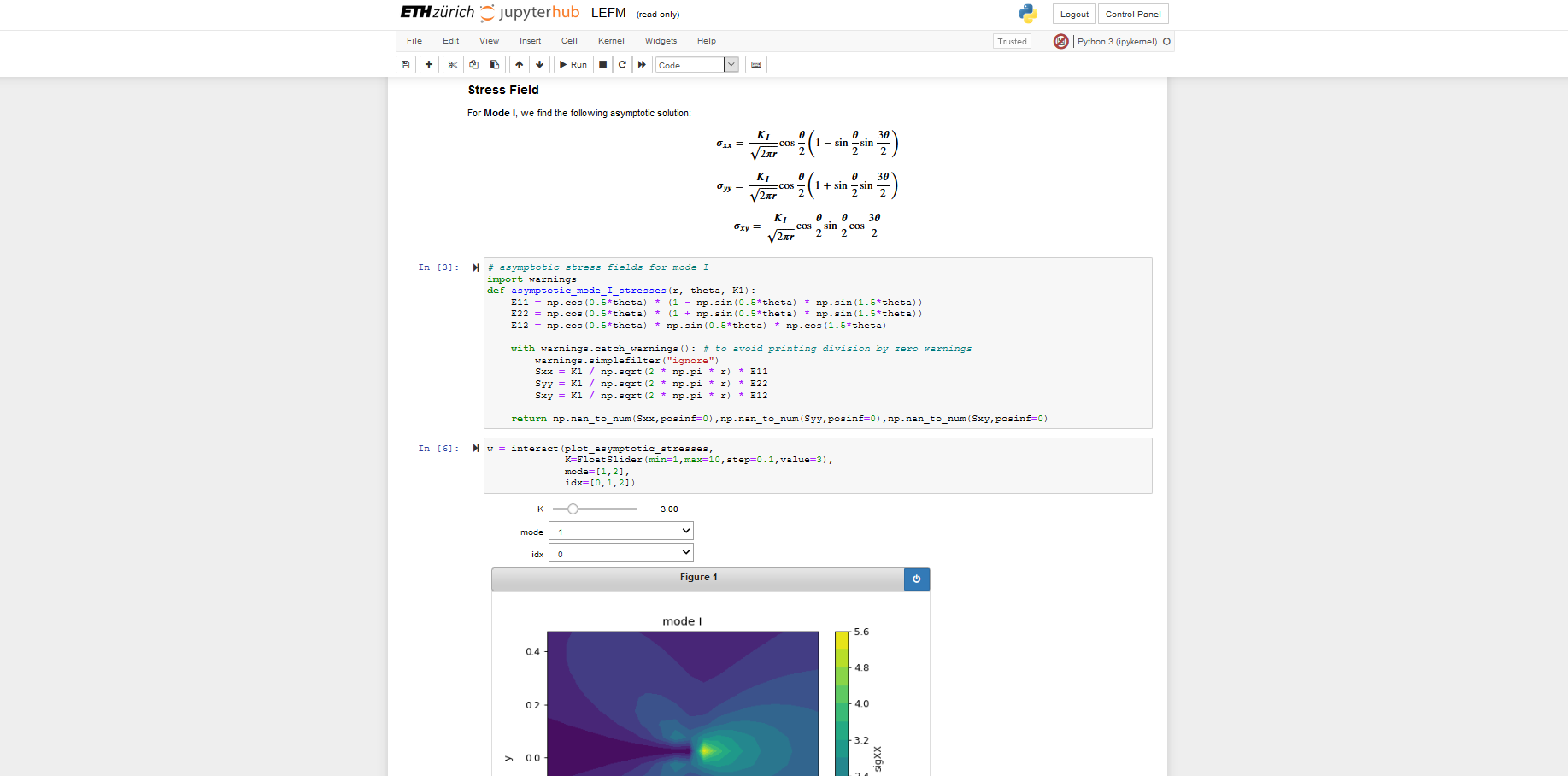Computational Science Investigation for Material Mechanics

This course is on numerical modeling of the mechanics of materials with particular focus on non-linear constitutive laws, multi-physical material description, and various failure mechanisms. We use real-life cases of structural failure to learn how to model and analyze complex material behavior and failure.
The course starts with a short introduction to forensic engineering with a series of case studies. Then, we review the process of developing a numerical model, discuss governing equations, and introduce constitutive modeling. We particularly focus on various non-linear elastic constitutive laws and continuum damage models. Further, we discuss numerical recipes to solve these non-linear problems as well as multi-physical coupled problems. The second half of this course focuses on material failure. Here, we first discuss the disorder-driven nature of material failure and introduce modeling approaches such as fiber bundle models and lattice fracture models. Then, we study material strength of civil engineering materials (e.g., concrete), fracture propagation, material fatigue, and creep failure.
Course material is provided in form of slides and Jupyter Notebooks, which allow for interactive learning.
The students learn to develop material models, implement code in python, and analyze simulation results. During this course, the students acquire experience in all of these aspects of numerical modeling for material mechanics by developing a micro-project on a specific material behavior/failure.
Lecturers: Prof. Dr. David Kammer & Dr. Falk Wittel
Material: provided on Moodle